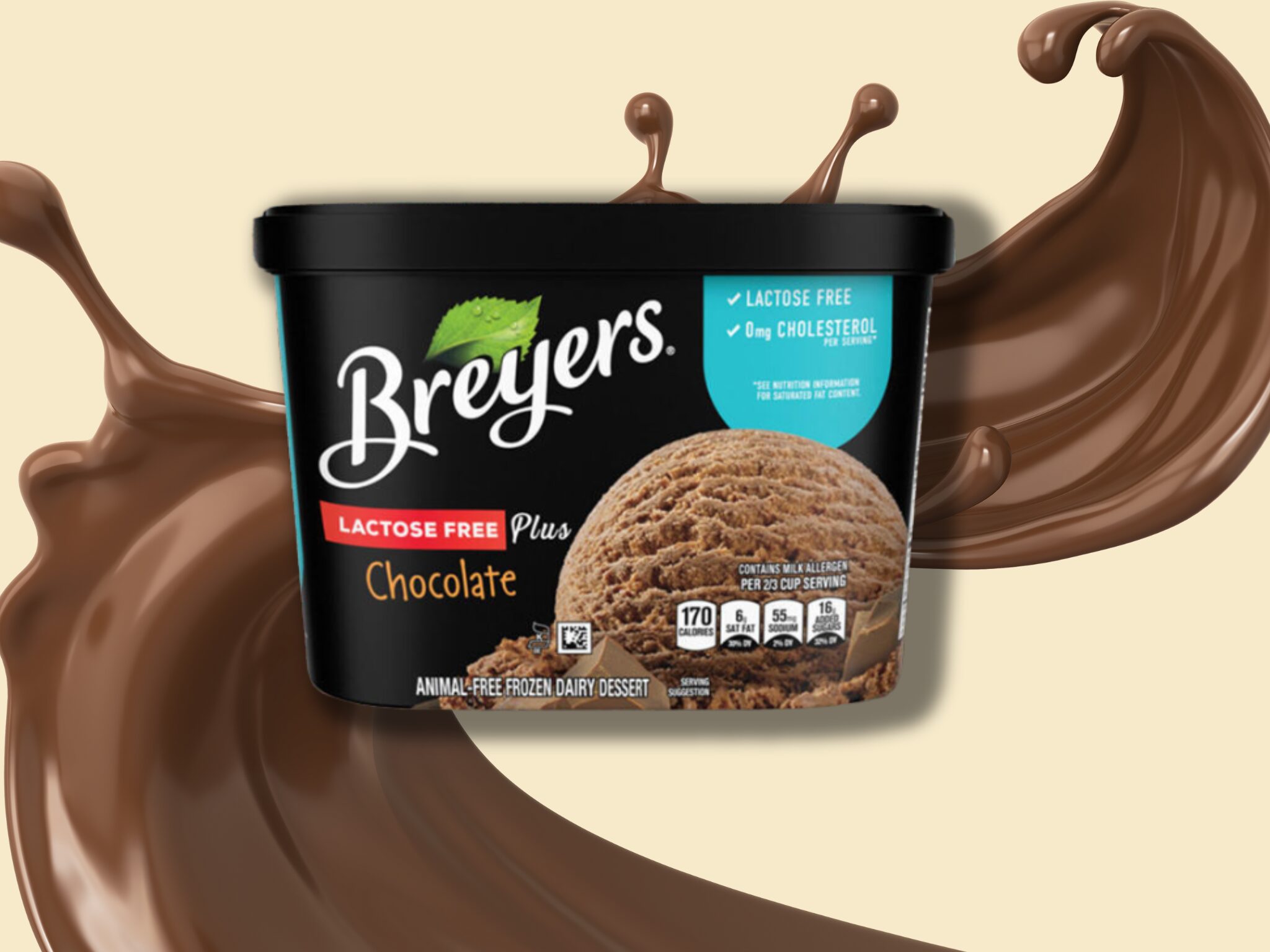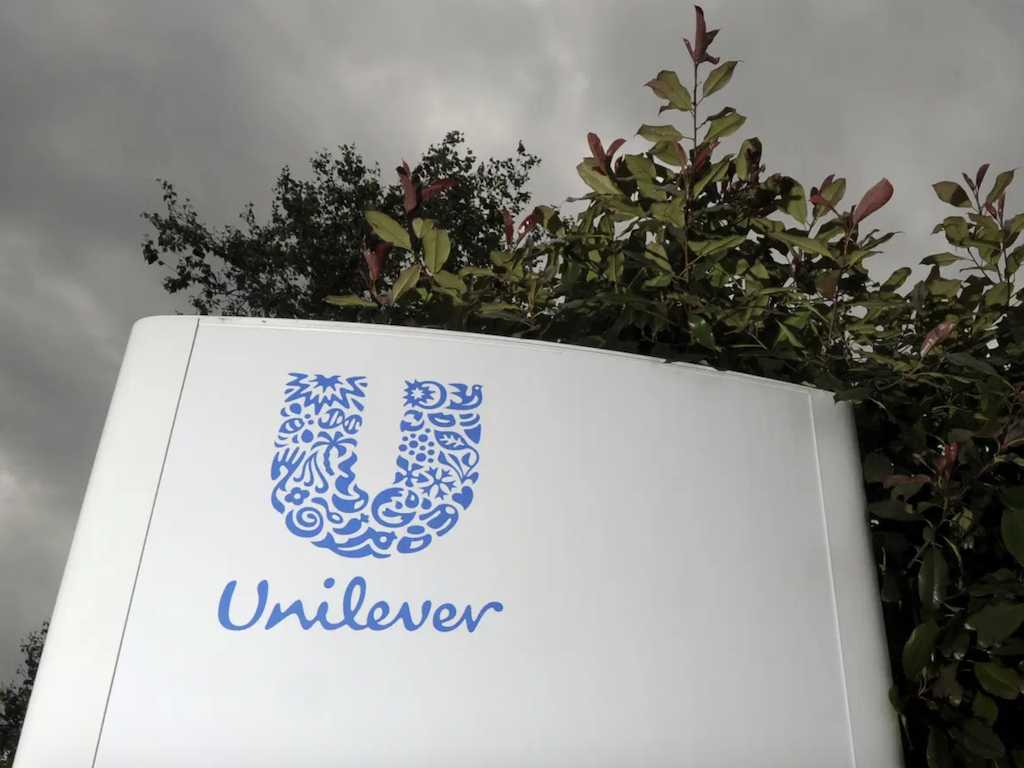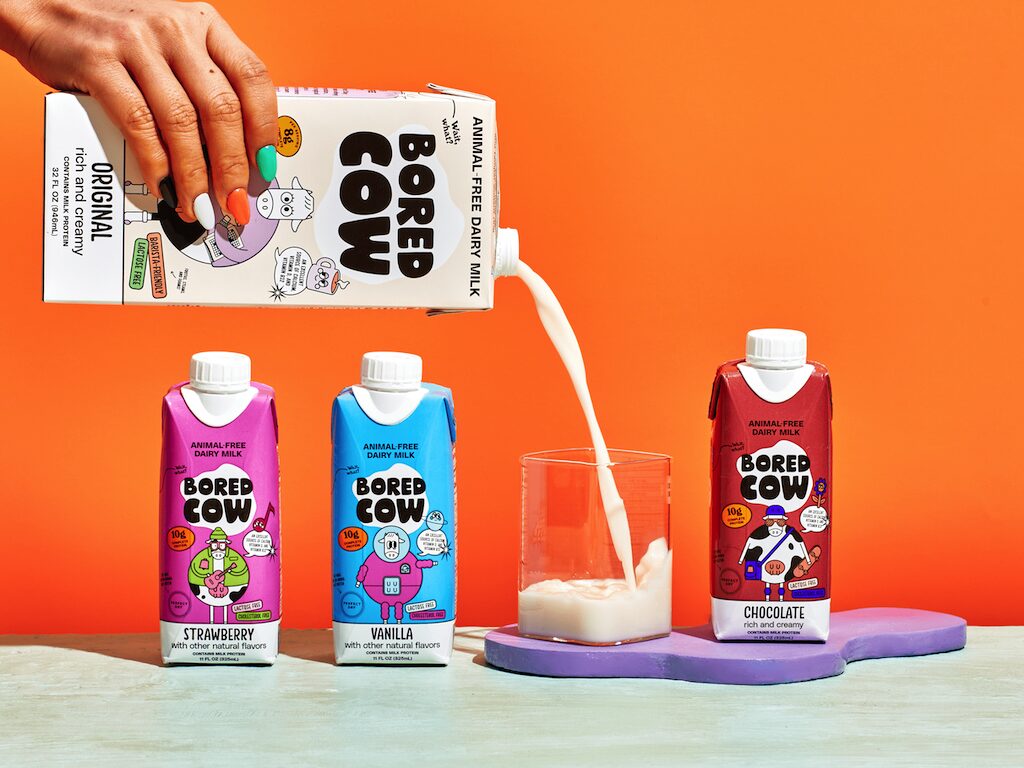
CPG giant Unilever has teamed up with precision fermentation pioneer Perfect Day for a new SKU, a lactose-free ice cream under the Breyers brand, to bolster its climate strategy and net-zero plans.
As it seeks to cut supply chain emissions en route to net zero, Unilever is introducing precision fermentation to its portfolio, incorporating Perfect Day’s animal-free whey protein into a lactose-free chocolate ice cream for Breyers.
Set to be rolled out nationwide in the US in 48oz tubs this month, it will cost consumers between $4-8, and marks Unilever’s first product leveraging precision fermentation. “As we’ve seen demand for alternative ice creams continue to grow, it is important to us to provide Breyers fans with frozen treats that meet their dietary needs and preferences, without compromising on the creamy taste and flavour that Breyers has offered for more than 150 years,” said Lisa Vortsman, chief marketing officer for Unilever Ice Cream North America.
The new product, which is cholesterol- and lactose-free, is labelled with an ‘animal-free dairy’ tag on the packaging. But it’s important to note that Perfect Day’s whey is a recombinant version of the same dairy protein, which would make the new Brayers ice cream unsuitable for people with dairy allergies.
“We’ve been working with Unilever for some time and are very excited about this launch of lactose-free chocolate in retailers nationwide,” a Perfect Day spokesperson told Green Queen. “This adds to our portfolio of existing partnerships.”
Unilever leverages precision fermentation to advance climate goals

The collaboration comes a month after Perfect Day announced it was finalising a pre-Series E funding round of up to $90M, which would add to the $750M it has previously raised. The latest investment accompanied the departure of Perfect Day co-founders Ryan Pandya and Perumal Gandhi, with current president TM Narayan named interim CEO.
At the time, the company promised it would announce “new molecules which will bring the impact of precision fermentation to more products and markets” alongside a “major CPG partner launch” this year. Its partnership with Unilever could well be the latter. “We are thrilled to have developed this new product with Unilever, a hallmark example of how our second decade is focused on driving growth through collaboration with leading companies that share our mission of a kinder, greener tomorrow,” said Narayan.
This is the first time Perfect Day’s whey protein, called ProFerm, will be used by a multinational ice cream brand. Breyers, a nearly 160-year-old brand, already has a line of lactose-free (but not vegan) and non-dairy frozen desserts, but incorporating Perfect Day’s whey – made from a decades-old fermentation process using from a fungi strain called Trichoderma reesei – will allow it to offer consumers the same functional experience as its conventional dairy-based ice creams.
For Unilever, which has been exploring precision fermentation since late 2022, this is a step towards meeting its sustainability goals, which outline a net-zero emissions strategy (including scopes 1, 2 and 3) by 2039. The CPG behemoth outlined that it needs to work with its suppliers to deliver on this goal. And it’s also doubling down on its plant-based portfolio (around 10% of ice creams under its brands are suitable for vegans already), setting a target of €1.5B ($1.61B) in annual sales by 2025 from these products in categories that would have traditionally used animal-derived ingredients.
“If you look into the ingredients that contribute to Unilever’s overall footprint, then dairy is significant, especially in ice cream,” said Klaas Jan van Calker, the company’s sustainable sourcing manager for dairy. “We know reducing those emissions must be a key part of Unilever’s solution for tackling climate change.”
While brands like Ben & Jerry’s, Magnum and Wall’s all have a range of non-dairy ice creams, adding a lactose-free option with Breyers will further diversify its alternative dessert offerings and contribute to its climate goals. An independent life-cycle assessment (LCA) of Perfect Day’s beta-lactoglobulin protein has found that it emits 91-97% fewer emissions, requires 29-60% less non-renewable energy, and consumes 96-99% less water than conventional dairy.
Overcoming commercial hurdles and answering critics

It will be interesting to see how the Breyers launch is received, given the volatile success of its previous precision fermentation partnerships. For example, General Mills debuted its Bold Cultr cream cheese using Perfect Day’s whey in November 2021, but it was discontinued in February last year after the conglomerate said it was “de-prioritising funding” for the project. Similarly, French dairy giant Bel Group’s US subsidiary used Perfect Day’s protein for animal-free cream cheeses launched in 2022 under the Nurishh brand, but they’re no longer available. The same year, Mars announced it would launch a vegan CO2COA chocolate bar with Perfect Day, but the website still has a ‘Coming Soon’ banner.
Breyers’ lactose-free ice cream is not the first time an ice cream product is using Perfect Day’s whey – the startup has previously unveiled ice creams under its former consumer brands Coolhaus and Brave Robot, part of its D2C umbrella business The Urgent Company, which also comprised Modern Kitchen and California Performance Co. But last year, Perfect Day agreed to sell its consumer subsidiary to the newly formed food tech company Superlatus, in a deal worth $1.25M (the final sale still hasn’t been confirmed by either company).
The agreement came months after Perfect Day laid off 15% of its staff (134 in total), pivoting its focus to B2B and its tech-focused offshoot Nth Bio. And this week, Iowa-based HRI Labs conducted a study claiming there were 92 unknown molecules, plus fungicide residue, in a Bored Cow product, the flavoured animal-free milk brand born out of a collaboration between Perfect Day and New York’s Tomorrow Farms.
It alleged that Bored Cow is using the term ‘microflora’ to avoid calling its product ‘GMOs’, although the product website states that “there are no GMOs in the final product, because the microflora are carefully filtered out”. In response, a Perfect Day representative told Green Queen: “HRI has not published or made their data publicly available to our knowledge, nor have we been able to review it. We question the methods and materials used in testing the product. Furthermore, Bored Cow does not contain microflora. All microflora are filtered out in the final step of Perfect Day’s fermentation process, leaving only the pure protein that Bored Cow uses in their multi-ingredient, kinder, greener product.”
They added: “Additionally, this article contains inaccurate information on the FDA GRAS [Generally Recognized as Safe] process. The FDA evaluation for our GRAS notification was very thorough and detailed on safety, nutrition, and quality. And, there are no fungicides used anywhere in our process for making whey protein from fermentation and, furthermore, no fungicide could be created as a result of our process.”
2024: strong momentum for the precision fermentation sector

All this illustrates the fact that precision fermentation companies still face challenges on multiple fronts, but with over 64 startups working in this space, and big conglomerates entering the market too, there’s reason for optimism, especially since fermentation-derived protein companies saw much greater investment than both plant-based protein and cultivated meat startups in the first half of last year.
The Breyers Lactose-Free Chocolate ice cream is the second precision fermentation product to be launched by a global corporation in less than a month. Two weeks ago, Nestlé released a limited-edition animal-free whey protein powder under its Orgain brand, called Better Whey, though it’s unclear whether the precision-fermented was produced in-house or via a third party like Perfect Day (which Nestlé has partnered with before on the Cowabunga animal-free milk line). Green Queen reached out to Perfect Day for confirmation after one of the company’s employees apparently confirmed it was their whey during an industry conference but the spokesperson declined to confirm this on the record.
But these launches signal a significant shift in the precision fermentation industry, which has already seen a ton of activity – particularly in terms of regulation – over the last year. This month alone, San Francisco’s New Culture and Dutch supplier Vivici earned self-affirmed GRAS status for their precision-fermented dairy proteins. They will soon notify the FDA to receive a ‘no further questions’ letter, which Perfect Day and Israel’s Remilk and Imagindairy already have.
The latter received its letter in January, the same month it unveiled an industrial-scale facility with a 100,000-litre fermentation capacity to produce its animal-free whey at price parity to the conventional dairy protein. Perfect Day itself currently works with co-manufacturers but is working on building in-house capacity.
There are success stories as well. Perfect Day’s ProFerm is part of MyProtein’s animal-free, lactose-free Whey Forward range, which is still available on the latter’s website and features in Unico Nutrition’s hybrid protein powder Apollo II. And The Every CO has received attention from Daniel Humm, owner of the Michelin-starred eatery Eleven Madison Park, who used the startup’s precision-fermented eggs as a centrepiece for a one-off dinner in December.
Consumers aren’t fully turned off either: a 2023 survey by Perfect Day, Cargill and the Hartman Group found that 77% of US adults are willing to try precision fermentation products once they understand its benefits. It’s up to the startup and its partners like Unilever to convert that thought into action.
The post Unilever to Launch Breyers Ice Cream with Perfect Day’s Precision-Fermented Whey appeared first on Green Queen.
This post was originally published on Green Queen.